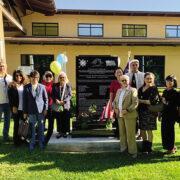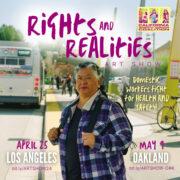THE Philippines dodged a bullet when it was spared from a Financial Action Task Force (FATF) blacklist.
After making a “high-level political commitment” to address deficiencies in its law against money laundering, the country was granted four months to render necessary amendments, with a condition to fast-track implementation of compliance efforts with international regulations, before the next FATF plenary meeting in February next year.
The country however, remains on the gray list, after lawmakers’ foible attempt to meet the required amendment on the Anti-Money Laundering Act (AMLA).
Paris-based FATF is an independent, inter-governmental body that develops and promotes policies to protect the global financial system against Money Laundering and Terrorist Financing.
The organization’s recommendations define criminal justice and regulatory measures and are recognized as the global standard for anti-money launder and anti-terrorism financing.
Earlier in June, FATF upgraded the Philippines from dark gray list to gray list, after being credited for the signing of two legislative reform bills-Republic Act (RA) 10167 or “An Act To Further Strengthen The Anti-Money Laundering Law,” and RA 10168, “The Terrorism Financing Prevention And Suppression Act of 2012.”
The third amendment, also known as Senate Bill 3123, would have catapulted the Philippines to the “good list,” but it failed to meet the October 19 deadline set by FATF.
“Third amendment has something to do with increasing the number of covered predicate crimes and some reporting mechanisms to ensure that our systems are at par with international standards so we’re being kept in the gray list for the meantime,” said deputy presidential spokesperson Abigail Valte upon the announcement of the FATF updated list over the weekend.
Meanwhile, Senate Juan Ponce Enrile doused over speculations that the bid to amend the present AMLA was due solely to the prospect of an FATF blacklist.
In its standards, FATF includes countries in a dark gray list with jurisdictions not making sufficient progress. The gray list signifies that the country has made notable progress in addressing deficiencies in its action plan.
If blacklisted, a country will be labeled as a risky business environment for any domestic, and especially foreign investments. Being blacklisted by FATF is a nightmare for any economy. For a developing nation like the Philippines, a delisting from FATF promises adverse implications.
When this happens, it will affect the country’s international credit ratings and hurt any of its bi-lateral and multi-lateral trade agreements. Confidence in the integrity of the country’s financial system will also be put into question, leading to a massive reduction of direct foreign investments into the local economy.
Further negative reactions by the international community will also hinder funding from international financial agencies such as the World Bank and the International Monetary fund.
As a bulwark of the Philippine economy, OFW remittances will suffer the most if the country fails to comply with FATF’s requirements.
About $500 million to $1 trillion are processed illegally worldwide every year. The crime is commonly related to two main global issues, drug trafficking, and terrorism. Every dollar successfully laundered represents a criminal activity actually paying off.
No country has the power to completely alleviate money laundering. If one country is hostile to laundering, criminals may simply look elsewhere to process their money illegally. Worldwide cooperation is therefore a prerequisite.
While there have been notable global efforts in making a dent in the money laundering industry, the problem remains huge and requires continued urgent attention.
A gray area sometimes represents an ethical dilemma that is neither right, nor wrong. But it could also mean opportunity.
With four months to go, the Philippine government must be prudent in putting its measures against money laundering, into implementation. The vision is clear, what remains is its manifestation.
(AJPress)




